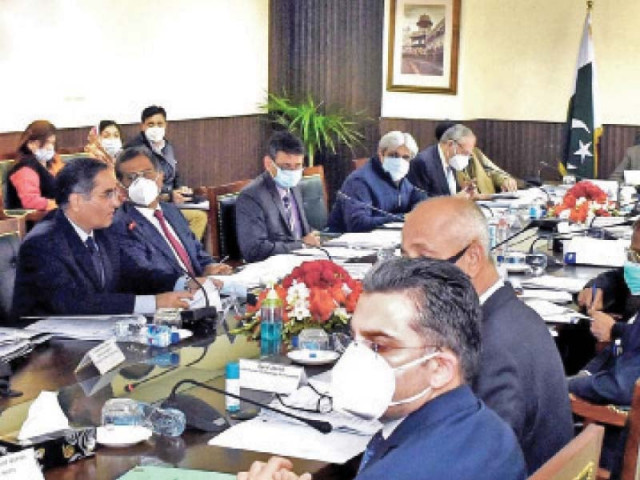FBR exceeds two-month target by Rs160b
Collection at import stage contributes 55% of total revenues

The Federal Board of Revenue (FBR) has exceeded its first two months target and pooled Rs850 billion at double than the needed growth rate to hit the annual goalpost, strengthening the government’s case in the eyes of the International Monetary Fund (IMF).
But 55% of the total revenues or Rs458 billion were collected at the import stage, which is also becoming a reason for increasing prices of various commodities. The FBR also collected 70% or Rs458 billion in indirect taxes – general sales tax, customs duty and federal excise duty which are the three main sources of indirect taxes.
Against the two-month target of Rs690 billion, the FBR has provisionally collected Rs850 billion during the July-August period of this fiscal year, exceeding the target by Rs160 billion, said FBR Chairman Dr Mohammad Ashfaq while addressing his maiden press conference.
He said that there was highly impressive growth rate of 41% during the first two months, as July-August collection of this fiscal year was also Rs247 billion higher than the same period of the previous year. The two-month growth rate was nearly double the pace that the FBR needed to achieve the Rs5.829-trillion annual target.
The differences over the FBR’s ability to achieve new tax target of over Rs5.8 trillion was one of the reasons behind deadlock in talks between the IMF and Pakistan. Finance Minister Shaukat Tarin was of the view that the FBR can achieve this target without taking more measures and had sought time from the IMF to prove his point.
The IMF’s position was that there was between Rs300 billion and Rs350 billion gap between the Rs5.829 trillion target and the measures taken to achieve that.
“The political environment remained good and the FBR had been given full space to apply our laws irrespective of whether someone was powerful or not,” said Dr Ashfaq while explaining reasons behind the increased tax collection.
The chairman said that centralised monitoring and supervision, realignment of tax offices jurisdictions and crackdown against unethical practices and smuggling also helped increasing the collection, he added.
Dr Ashfaq’s presser also helped understand his priorities as FBR chairman. He would not care about the nature of taxation and its source of collection as long as his end objective is achieved. Ashfaq called talking about recovery of stolen money from abroad a “fashionable” thing and also claimed that inflation was not a reason behind increasing tax collection. He said reform has become a “funky consultant terminology” but said that he was doing restructuring in the FBR that was yielding desired results.
Withholding of taxes at the import stage is the deliberate choice of the parliament, which has its own advantages, said the FBR chairman. To a question whether his tax collection would be affected if the government decides to suppress imports to avoid balance of payments crisis, Ashfaq said that he was “hedging against such risks”.
The chairman said that the imports stage collection was also increasing because of high imports of food items, machinery and raw materials. “It is an evidence of vibrancy in the economy,” he added.
The growing reliance on import stage and also indirect taxes has severely distorted the progressive and regressive taxation ratios. The heavy reliance on import taxes and duties may cause inflation in the country, as taxes paid at the import stage are usually recovered by increasing the prices. These import taxes are also causing an increase in prices of electricity and petroleum products.
Tax-wise breakup
The FBR collected Rs254 billion under the head of income tax – up by Rs56 billion or 29% over the same month of last year. The collection was Rs46 billion higher than the target.
The share of income tax in total revenue fell sharply to just 30%, which has put more burden on people who have less capacity to pay. The Pakistan Tehreek-e-Insaf (PTI) election manifesto had promised to increase the share of direct taxes to 45% from 38%.
The FBR showed 51% growth in sales tax collection in the July-August period, due to heavy reliance on import taxes.
Published in The Express Tribune, September 1st, 2021.
Like Business on Facebook, follow @TribuneBiz on Twitter to stay informed and join in the conversation.



















COMMENTS
Comments are moderated and generally will be posted if they are on-topic and not abusive.
For more information, please see our Comments FAQ